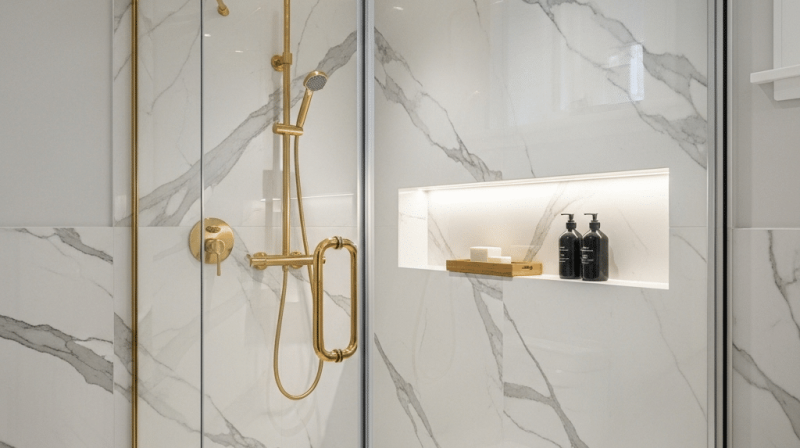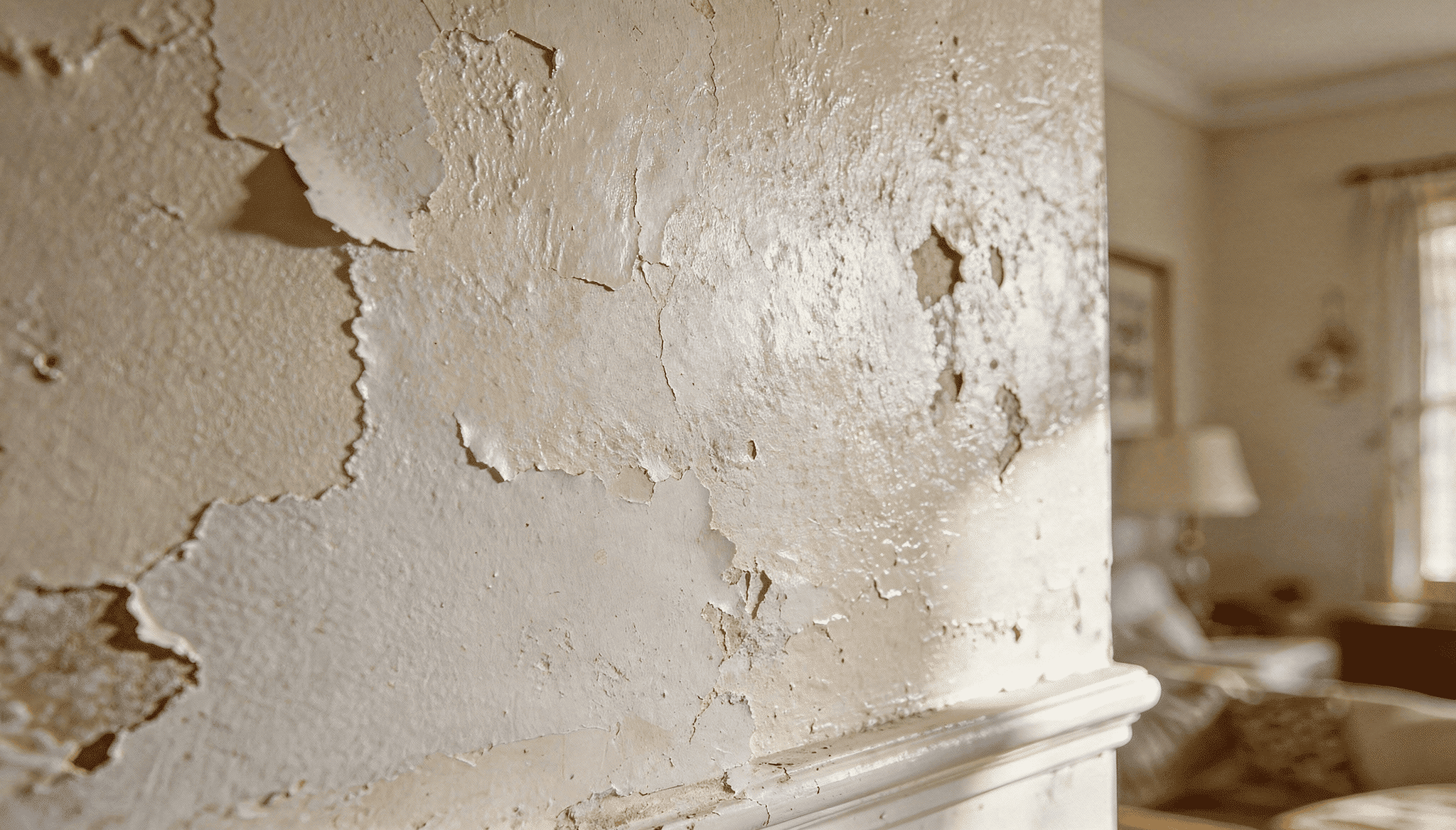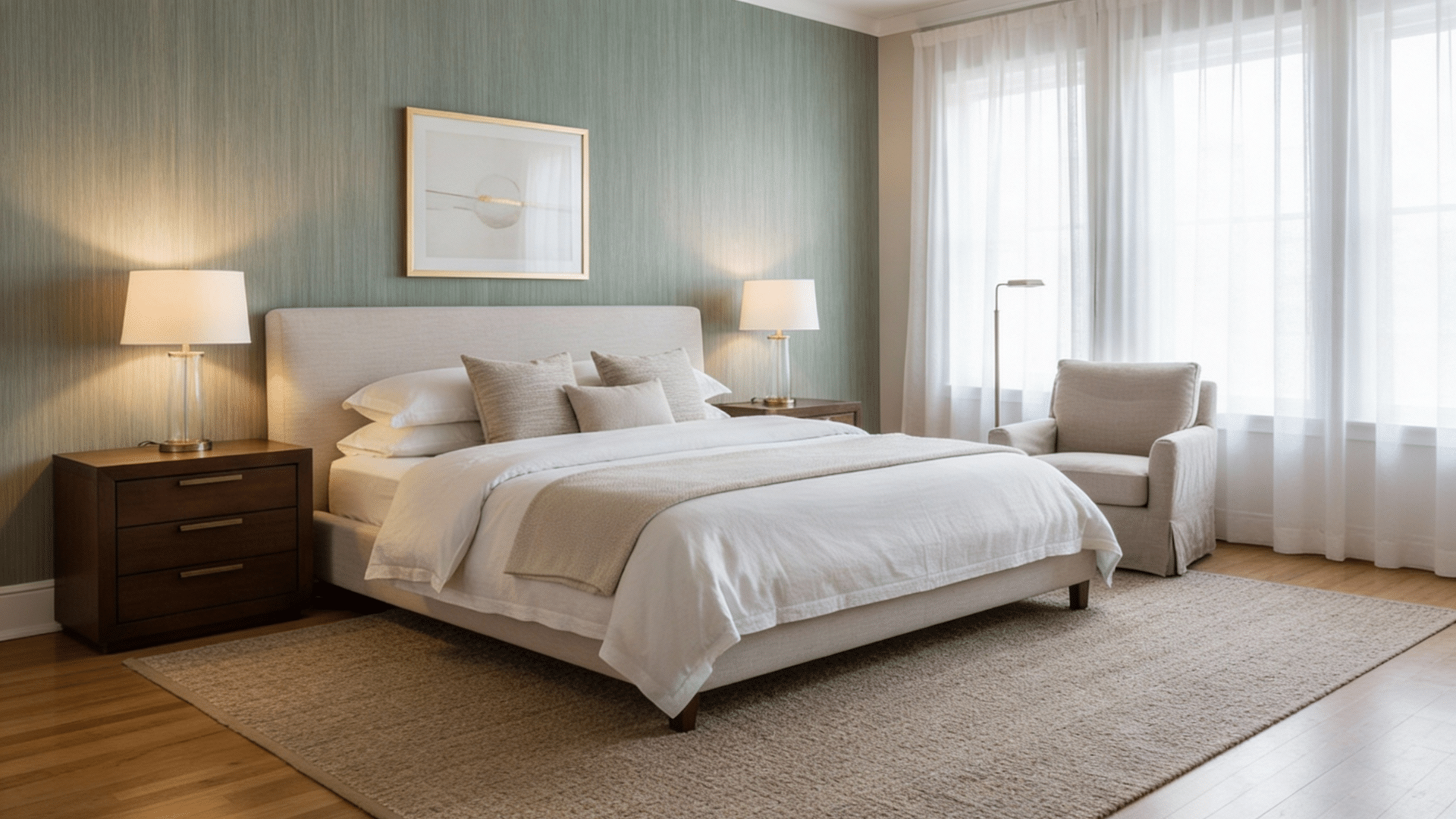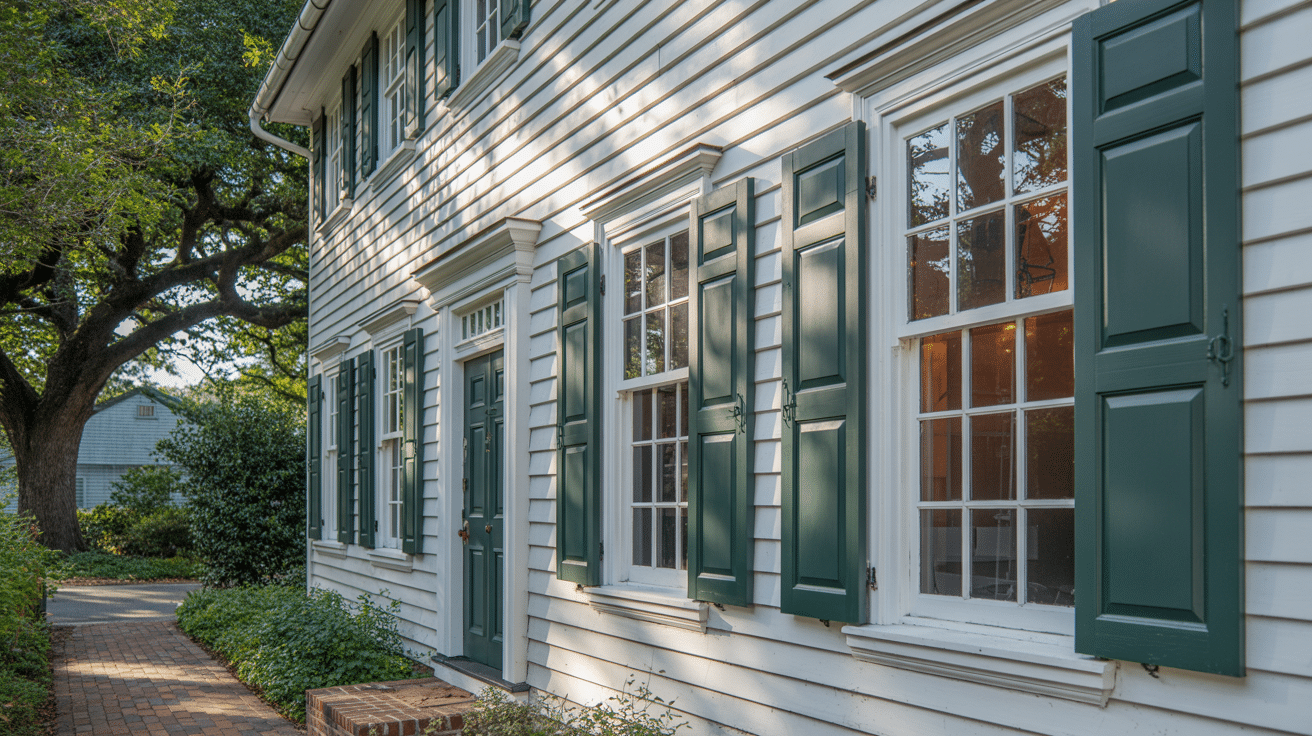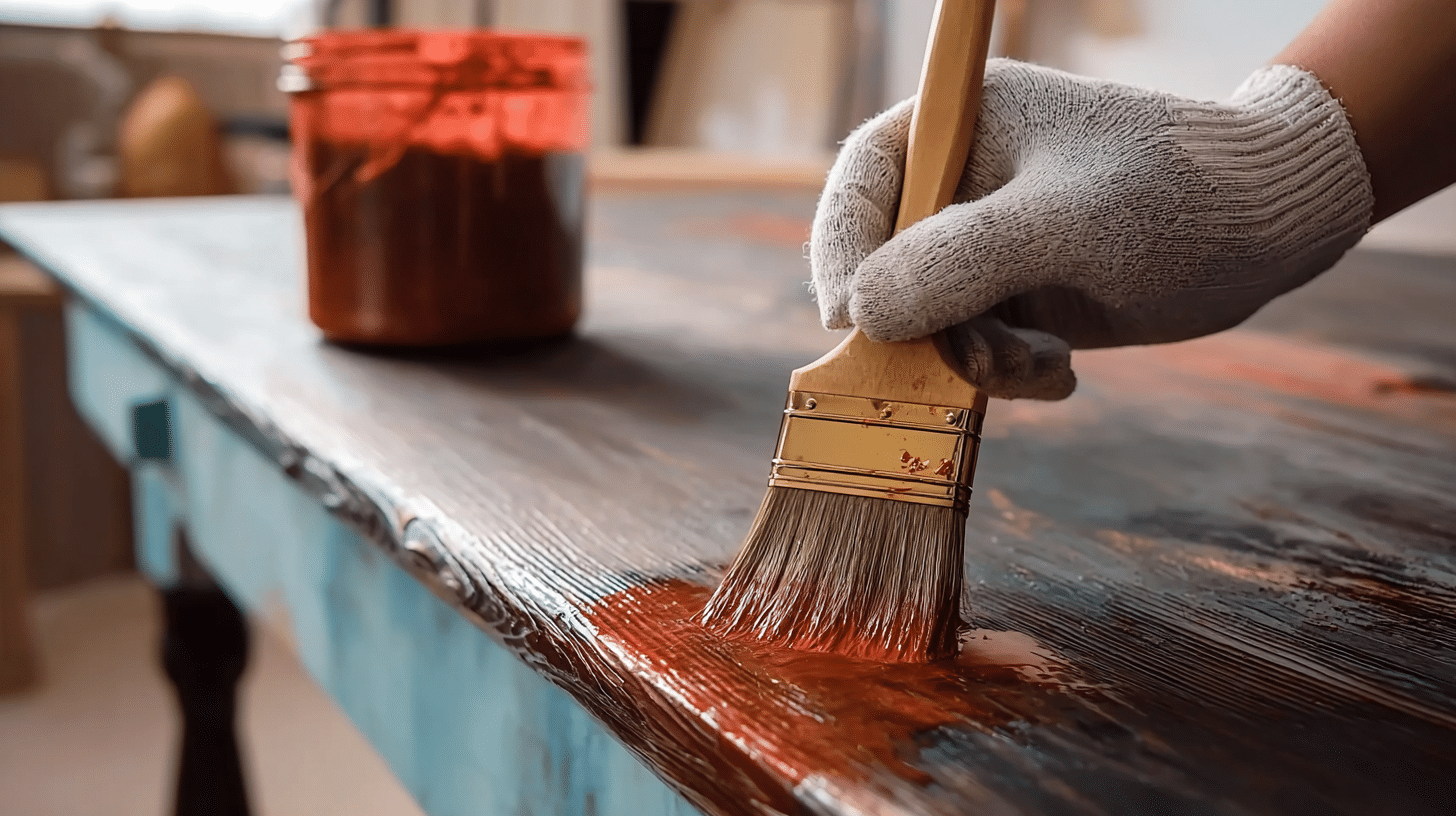Looking for the best material for shower walls? I get it, choosing the wrong material can turn your daily shower into a maintenance nightmare.
Here’s what most people don’t realize, the material of your shower wall affects everything from water damage prevention to cleaning time and long-term costs.
Pick the wrong one, and you’ll face mold issues, cracking, or constant repairs.
After researching dozens of options, I’ve found top-rated materials that actually work.
In this guide, I’ll walk you through the pros and cons of each material and share selection tips that’ll save you from costly mistakes. Ready to make the right choice for your shower walls?
Why is Choosing the Right Shower Wall Material important?
I’ve learned the hard way that shower wall material isn’t just about looks. Water resistance stands as the foundation of bathroom protection.
When moisture seeps behind walls, it damages wooden studs, creates structural problems, and turns bathrooms into mold factories. The right material prevents water from reaching the surface, thereby avoiding costly repairs.
Style matters too. Shower walls occupy a significant visual space and have a direct impact on home value. Real estate agents tell me that outdated or damaged shower walls can negatively impact sale prices. Modern buyers expect materials that match current design trends, from sleek subway tiles to natural stone looks.
Daily maintenance tells the real story. Some materials need weekly scrubbing to prevent soap buildup and stains. Others wipe clean with minimal effort.
Durability separates good materials from great ones. Cracking, fading, and wear patterns appear within months on poor-quality options, while high-quality materials maintain their appearance for decades.
Best Shower Wall Materials to Upgrade Your Bathroom
After testing and researching numerous options, I’ve narrowed down the best material for shower walls based on performance, cost, and real-world durability.
Each material serves different needs and budgets. Some work better for DIY projects, while others require professional installation.
Here’s what works best in today’s bathrooms.
1. Tile
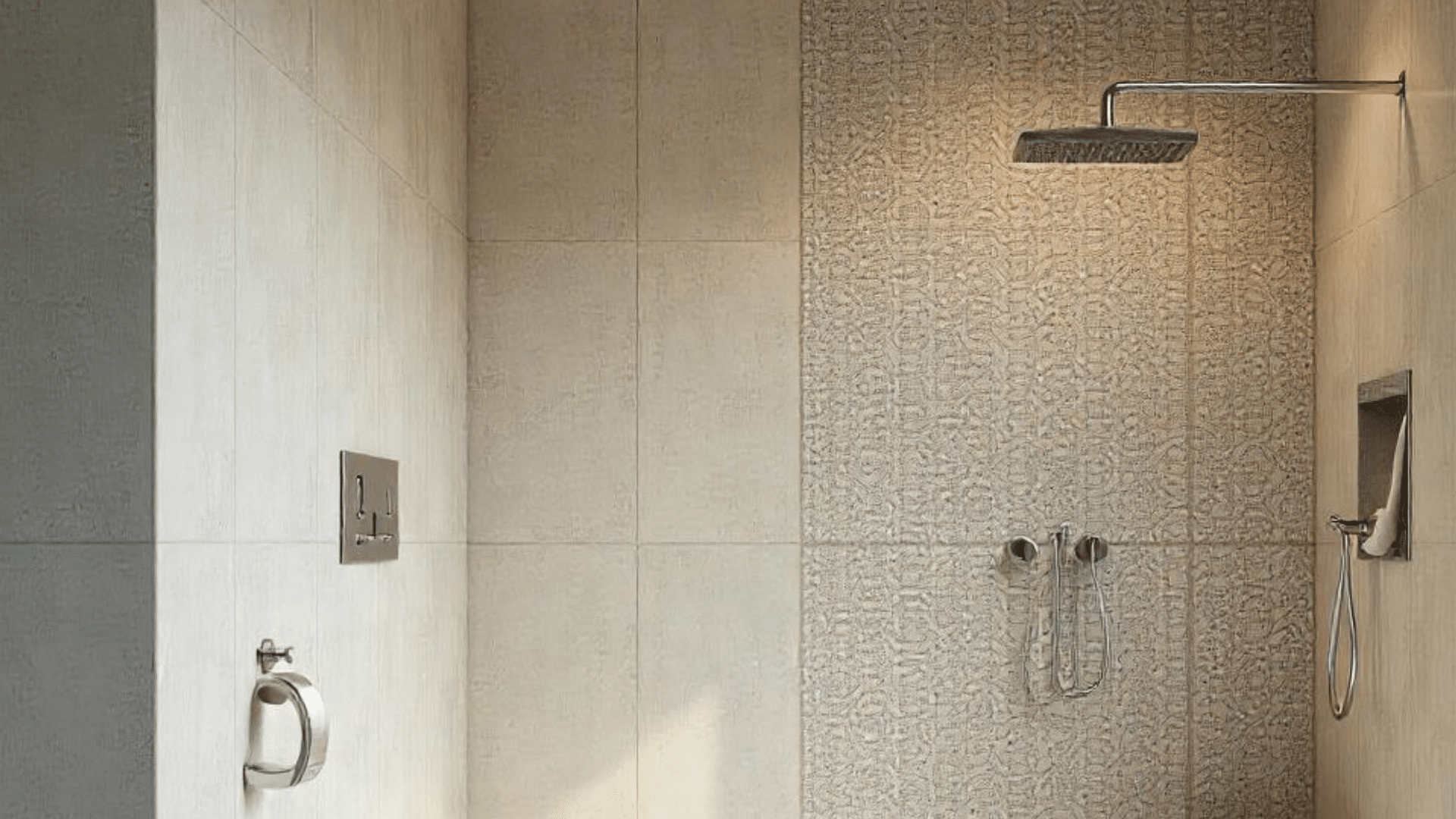
Tile remains the gold standard for shower walls. Porcelain, ceramic, glass, and stone tiles offer unmatched versatility and proven performance in wet environments.
Pros:
- Superior water resistance when properly installed.
- Unlimited design options with colors, patterns, and sizes.
- Long lifespan with minimal replacement needs.
- Increases home value significantly.
Cons:
- Grout lines require regular cleaning and maintenance.
- Professional installation is recommended for best results.
- Higher upfront costs compared to panels.
2. Solid Surface Panels
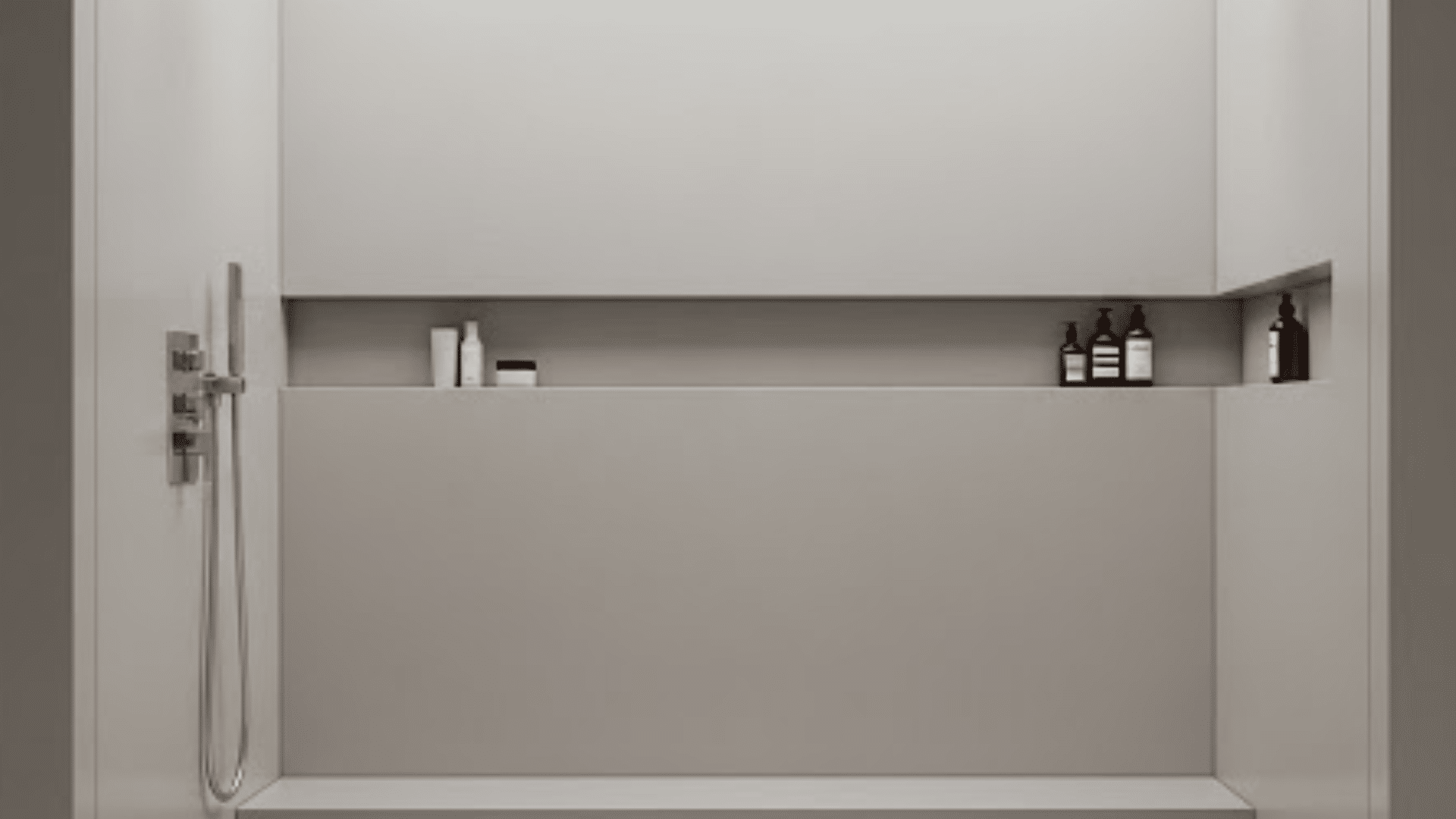
Solid surface panels create smooth, continuous walls without seams or grout lines. These engineered materials resist moisture and maintain clean lines.
Pros:
- No grout means fewer places for mold growth.
- Easy daily cleaning with standard cleaners.
- Professional, high-end appearance.
- Heat and stain resistant.
Cons:
- Expensive material and installation costs.
- Limited design options compared to tile.
- Requires professional installation for proper fit.
- Difficult to repair if damaged.
3. Acrylic Panels
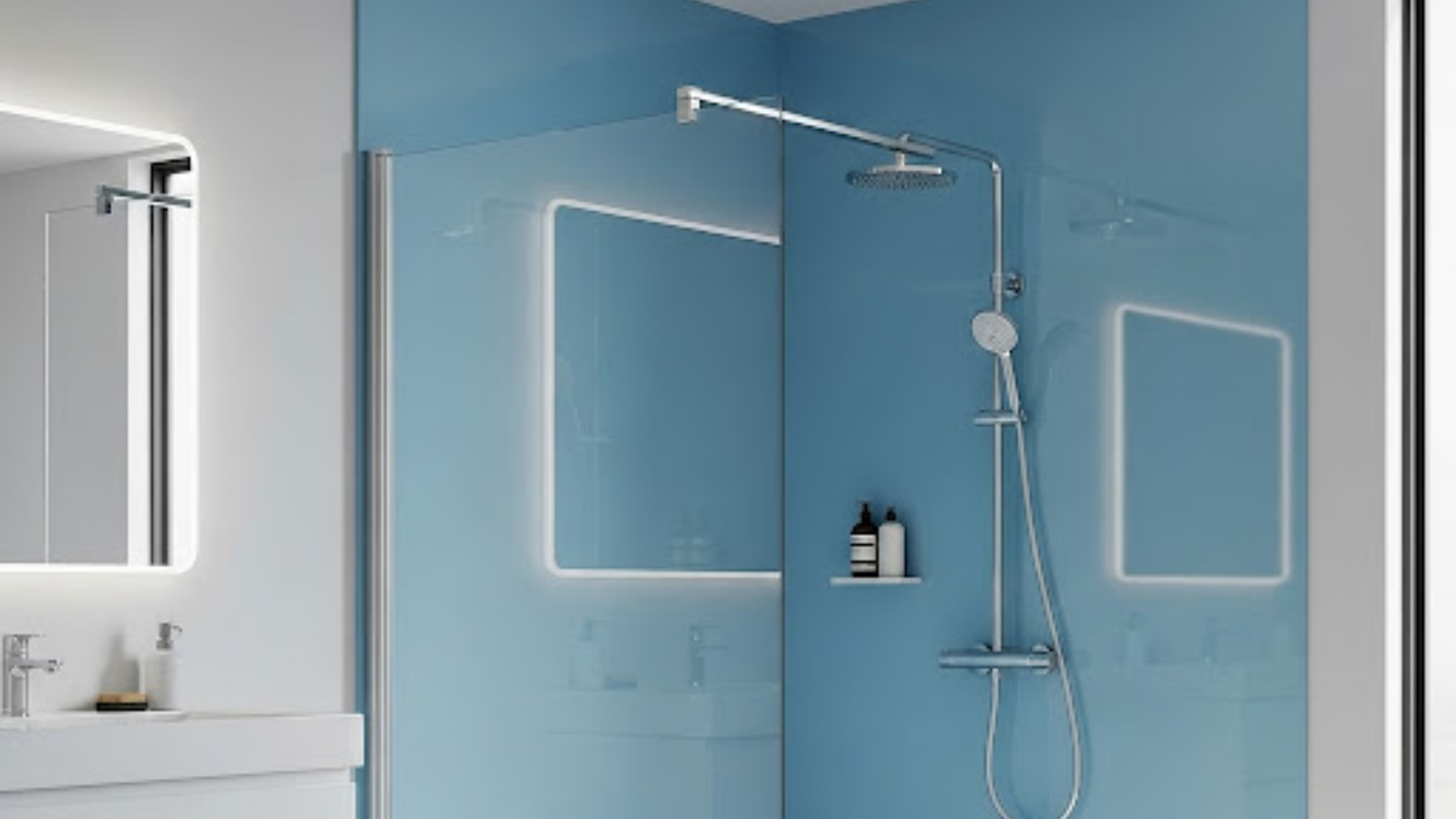
Acrylic panels offer budget-friendly wall coverage with decent performance. These lightweight sheets can often be installed over existing surfaces.
Pros:
- Affordable material costs for tight budgets.
- Lightweight installation process.
- Good water resistance when sealed properly.
- Available in multiple colors and patterns.
Cons:
- Can scratch and show wear over time.
- Limited high-end design options.
- May yellow or fade with age.
- Seams can become problem areas if not sealed well.
4. Fiberglass Panels
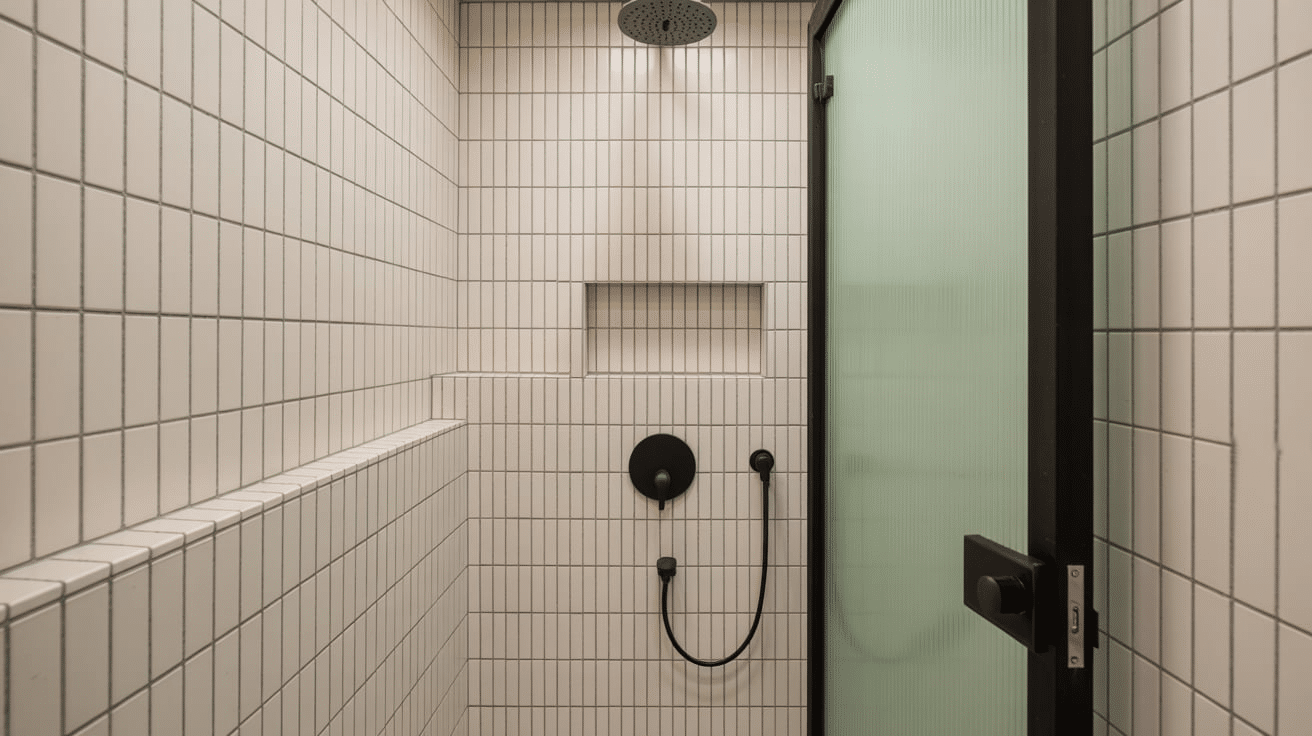
Fiberglass provides the most budget-conscious option for shower walls. These panels work well for basic renovation projects and rental properties.
Pros:
- Lowest material cost among all options.
- Very low maintenance requirements.
- Easy to install for DIY projects.
- Lightweight and manageable.
Cons:
- Limited design choices and colors.
- Can crack or chip with impact.
5. Laminate and PVC Panels
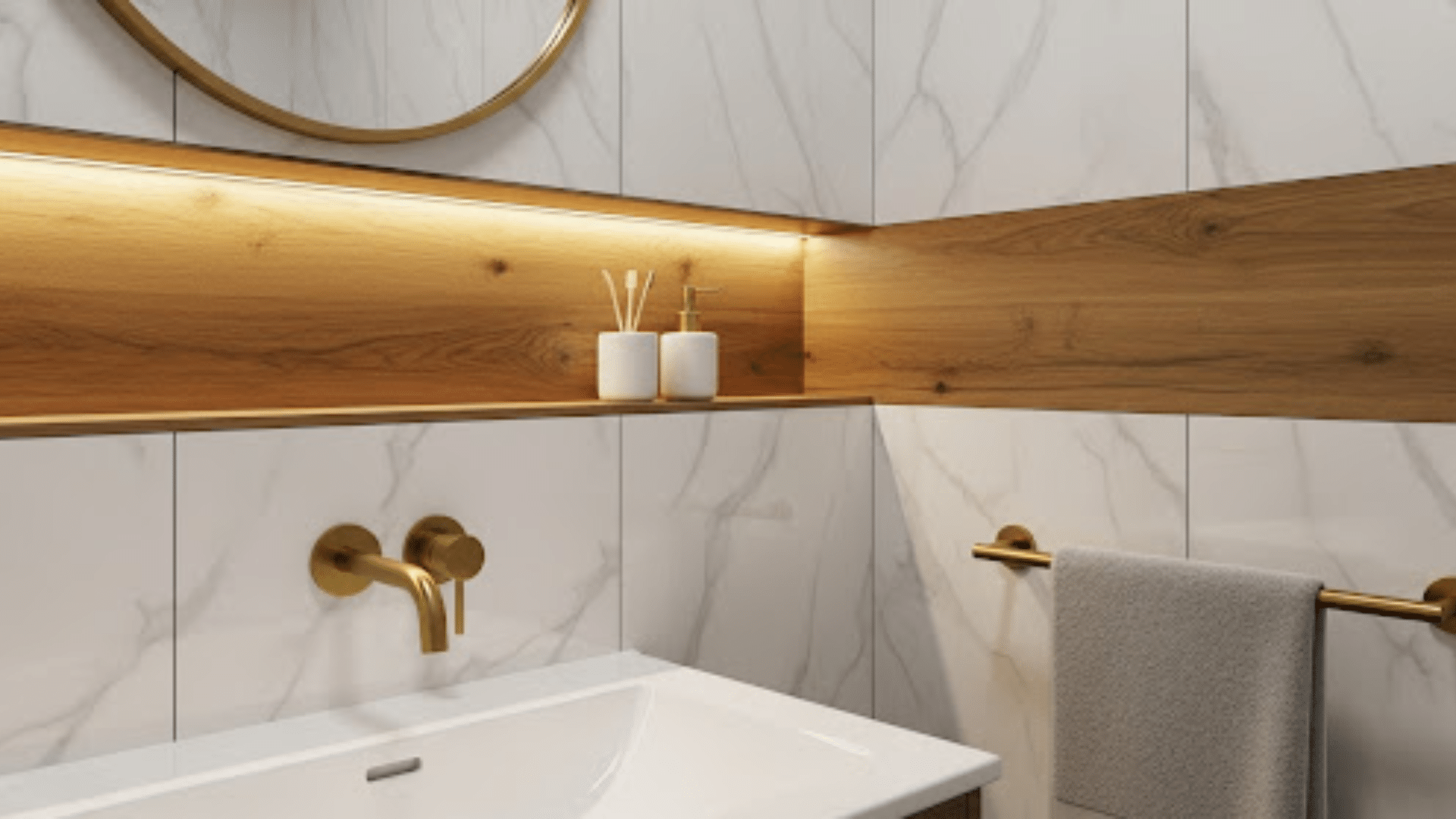
Laminate and PVC panels bring modern manufacturing to shower walls. These synthetic materials resist water while maintaining reasonable costs.
Pros:
- Good water resistance at a low cost.
- DIY-friendly installation process.
- Many design patterns are available.
- Easy to cut and fit around fixtures.
Cons:
- Not as durable as premium materials.
- Seams may fail over time.
- It may appear artificial in comparison to natural materials.
- Limited repair options when damaged.
6. Natural Stone (Marble, Granite, etc.)
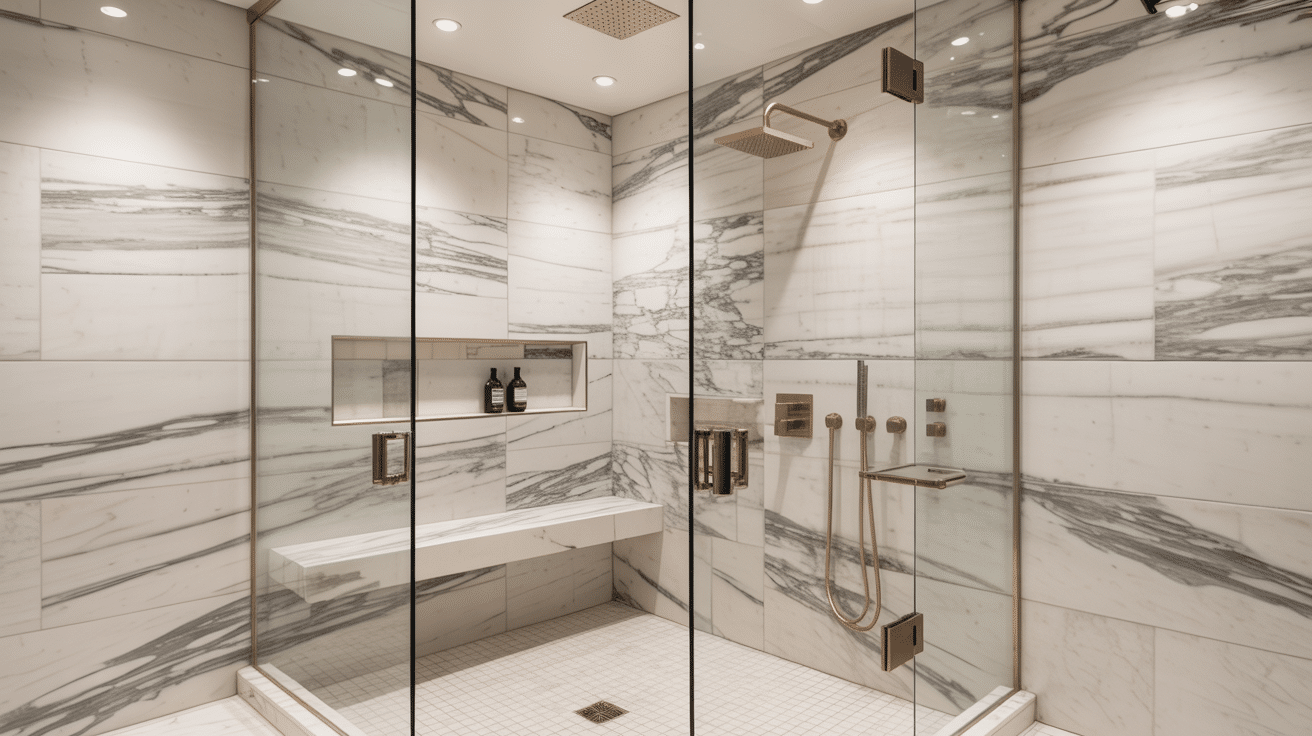
Natural stone creates luxurious shower walls with timeless appeal. Marble, granite, and slate offer unique patterns that synthetic materials can’t match.
Pros:
- Unmatched luxury and visual appeal.
- Extremely durable when properly maintained.
- Unique patterns and natural variation.
- Significantly increases home value.
Cons:
- Requires regular sealing and maintenance.
- Expensive material and installation costs.
- Some stones are prone to staining easily without proper care.
7. Quartz Panels
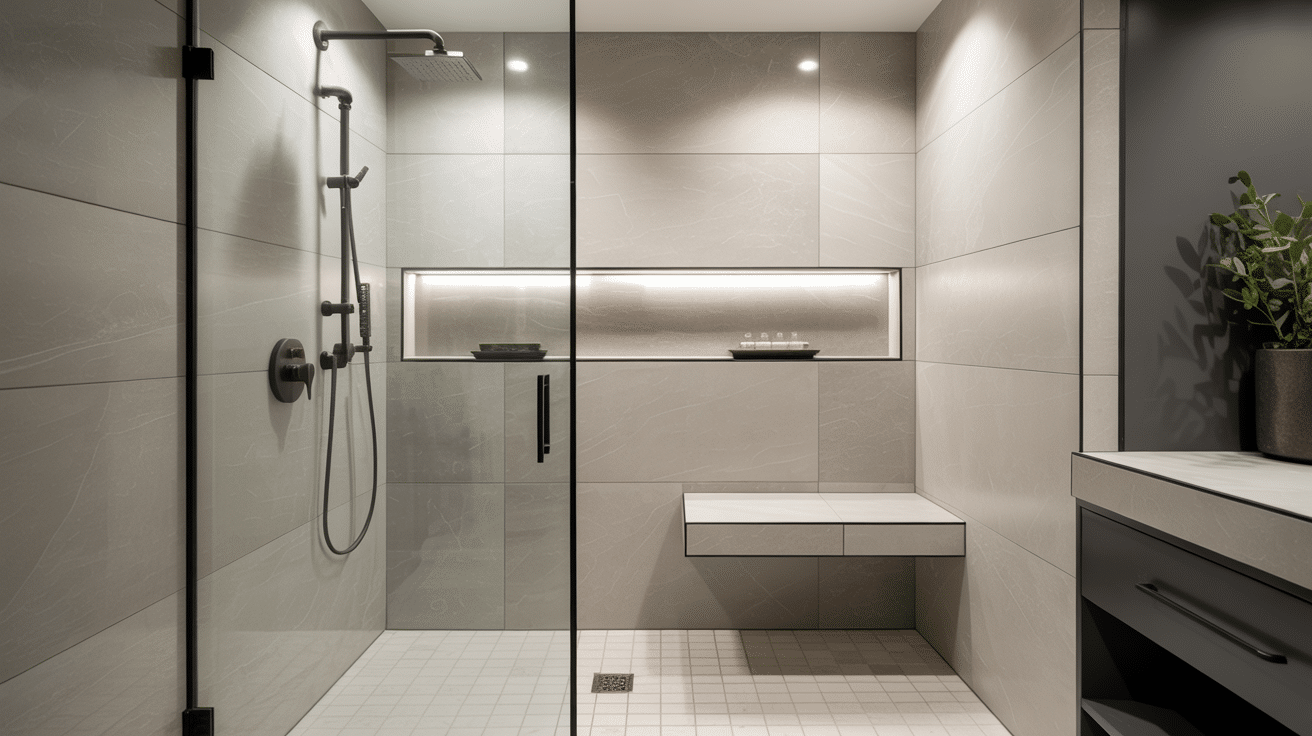
Engineered quartz panels combine the beauty of natural stone with modern manufacturing techniques. These surfaces offer a stone look without the maintenance issues associated with natural stone.
Pros:
- Non-porous surface resists stains and bacteria.
- Consistent patterns and colors.
- Lower maintenance than natural stone.
- Very durable and long-lasting.
Cons:
- Higher cost than most synthetic options.
- Heavy material requiring strong wall support.
- Limited to the manufacturer’s available patterns.
- Professional installation recommended.
8. Glass Panels
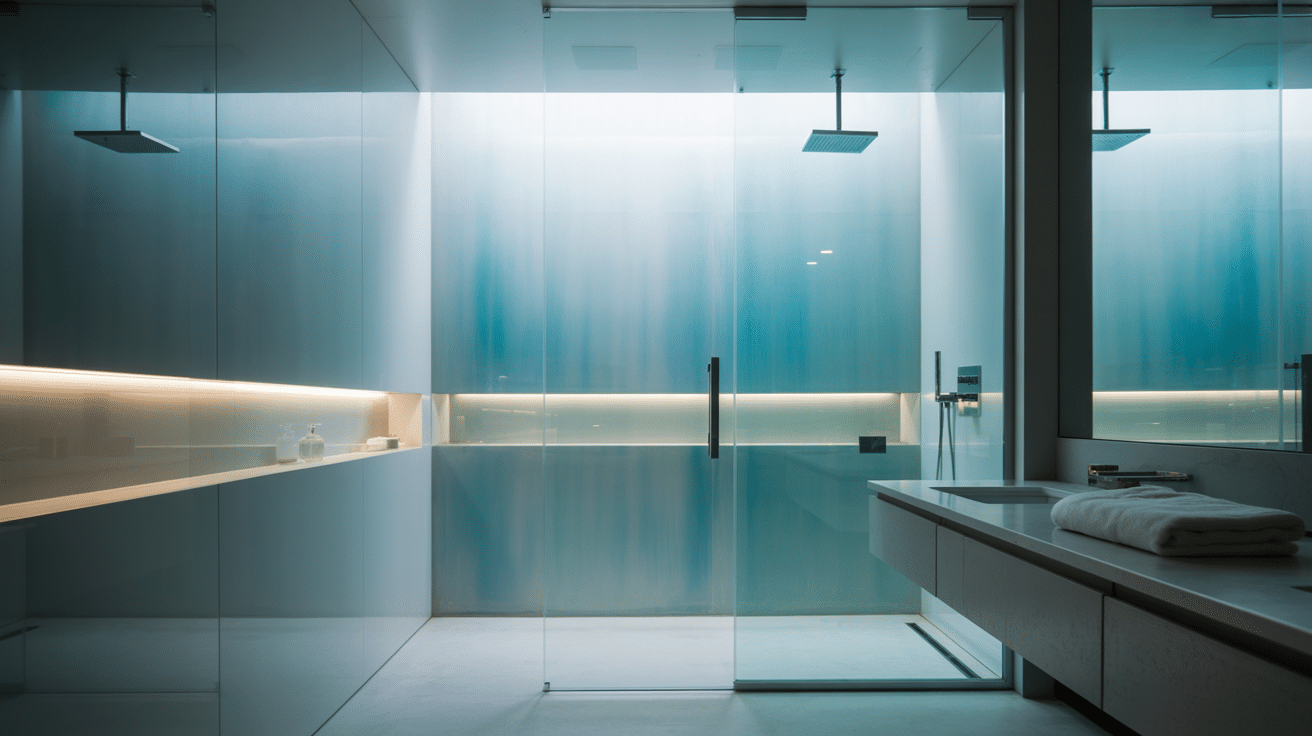
Glass panels create modern, spa-like shower environments. Back-painted or textured glass offers clean lines and easy maintenance.
Pros:
- Extremely easy to clean and maintain.
- Modern, sleek appearance.
- Custom colors and sizes available.
- No grout lines to maintain.
Cons:
- Expensive material and installation costs.
- Heavy panels need structural support.
- Shows water spots and fingerprints easily.
- Professional installation required for safety.
9. Stainless Steel or Metal Panels
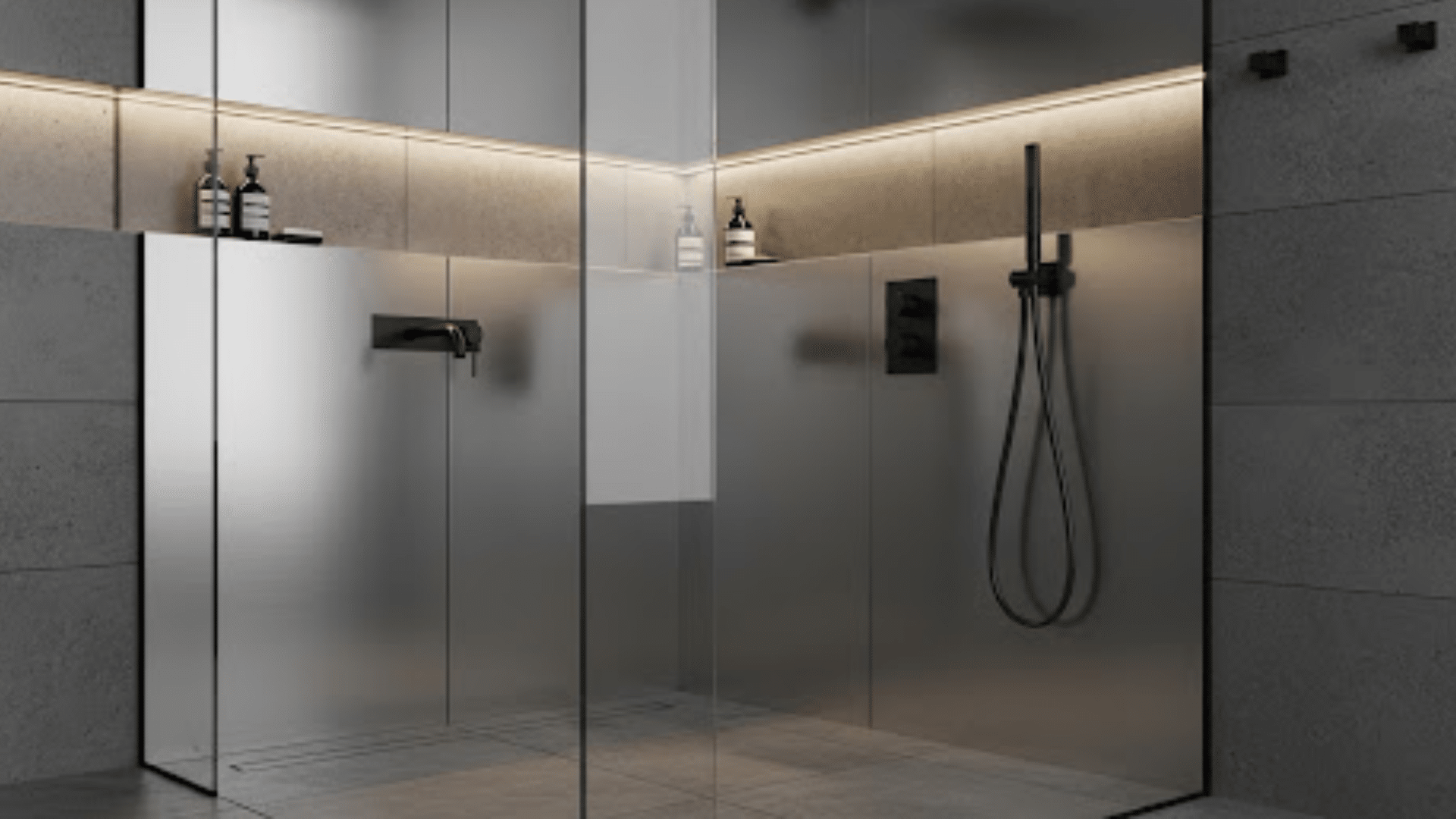
Metal panels bring industrial style to modern bathrooms. Stainless steel and other metals create unique, contemporary shower spaces.
Pros:
- Extremely durable and long-lasting.
- Complete water and mold resistance.
- Easy to clean with standard products.
- Unique, modern appearance.
Cons:
- Limited appeal to mainstream buyers.
- Can show water spots and scratches.
- Cold feel and industrial look.
- Higher material costs than basic options.
How to Choose the Best Material for Shower Walls
Selecting the best material for shower walls requires careful consideration of multiple factors. The decision affects daily life, maintenance costs, and long-term satisfaction. Here’s my systematic approach to making the best choice:
- Define Priorities: Determine what matters most: visual appeal, upfront cost, cleaning ease, or longevity. Budget-conscious homeowners often prioritize cost and maintenance. Design-focused individuals value appearance and style options.
- Understand Bathroom Usage: High-traffic family bathrooms need durable, stain-resistant materials. Guest bathrooms with occasional use can work with less expensive options that still look good.
- DIY vs. Professional Installation: Assess skill level honestly. Acrylic and PVC panels suit DIY projects. Tile, stone, and glass require professional expertise for proper waterproofing and installation.
- Think Long-Term: Calculate total ownership costs, including maintenance, cleaning supplies, and replacement timelines. Expensive materials often cost less over the decades due to durability.
- Talk to a Bathroom Expert: Consult professionals for complex projects or unique situations. Expert advice prevents costly mistakes and ensures proper installation methods.
Maintenance Tips for Shower Wall Materials
Regardless of the material we choose, maintenance ultimately determines durability and appearance over time. Proper care extends lifespan and prevents costly repairs.
From basic cleaning to preventive measures, these practices are effective for all types of shower wall materials. Regular maintenance keeps shower walls looking new and functioning properly:
- Clean regularly with non-abrasive cleaners: Weekly cleaning prevents soap buildup and stains from setting permanently
- Avoid harsh chemicals: Bleach and acid-based products damage surfaces and protective coatings over time
- Use a squeegee after each shower: Removing excess water prevents mineral deposits and reduces mold growth
- Wipe down grout lines: Grout collects moisture and dirt, creating ideal conditions for mold and mildew
- Ensure proper ventilation: Exhaust fans and open windows reduce humidity levels that cause damage
- Repair cracks or chips promptly: Small problems become major issues when water seeps behind surfaces
- Follow manufacturer recommendations: Each material has specific care instructions for optimal performance and warranty protection.
Final Thoughts
Choosing the best material for shower walls comes down to balancing priorities, budget, and long-term goals.
The key lies in matching material properties to bathroom usage and maintenance preferences.
Start by defining priorities: durability, cost, or style. Then consider installation requirements and long-term maintenance.
Most importantly, don’t rush this decision. Take time to research, compare samples, and consult professionals when needed.
Have you installed any of these shower wall materials in your home? Share your experience in the comments; I’d love to hear about it, and it might help someone else make the right choice!


